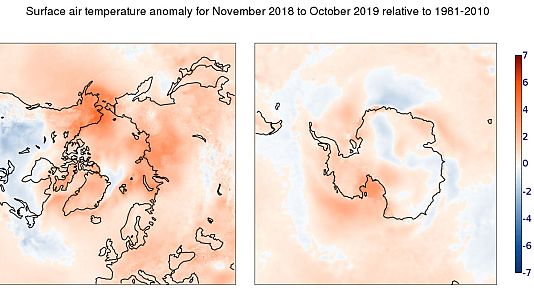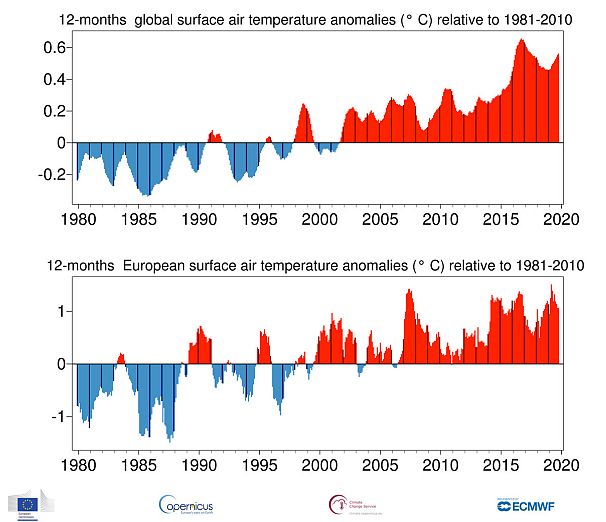Temperatures were 0.69C warmer than the average October temperatures from 1981-2010.
Average temperatures across the world in October 2019 were the warmest on record for that month, the EU’s earth monitoring service Copernicus said on Tuesday.
October 2019 was 0.69°C warmer than the month's average from 1981-2010. In Europe, the month was 1.1°C warmer than the average October in the same timespan.
Many European countries saw above-average temperatures throughout the month with the exception of those in the north and northwest of the continent, Copernicus said, but European temperature anomalies are often larger than global ones, especially in winter.
Temperatures were also above average in large parts of the Arctic, but the western part of the US and Canada experienced colder temperatures than usual.
The October temperature is already 1.2°C above pre-industrial levels defined by the Intergovernmental Panel on Climate Change (IPCC), Copernicus said.
This is close to the ambitious 1.5°C lower limit outlined by the Paris climate agreement which aims to keep warming between 1.5°C and 2°C.
September 2019 was roughly 0.57°C degrees above average, Copernicus said last month.
Indeed, this is the fifth month in a row that has broken records or been close to breaking records, the monitor said.
October 2019 also saw the area of Arctic sea ice also reach a record low. Climate scientist Zach Labe said this was consistent with the rapid change of the Arctic and related to above-average surface temperatures in the area.
Read more: Arctic ice reached record low in October
According to Copernicus, experts agree that the temperature datasets show a sustained period of above-average temperatures from 2001.
Copernicus findings are based on computer-generated analysis using measurements from satellites, ships, aircraft and weather stations worldwide.
Meanwhile, the US National Oceanic and Atmospheric Administration (NOAA) announced earlier in the year that July 2019 was the warmest month on record in 140 years.













